
Table of Contents
ToggleA story:how to find low hanging fruit keywords
Let me share a real-life story that will be helpful for both beginners and professionals in SEO.
As you know, the foundation of SEO work is keyword research. You didn’t know that? Well, now you do! Because just like the future of a building depends on its foundation, the success or failure of your website heavily relies on proper keyword research. Without thoroughly understanding keyword research, no one should step into SEO—whether you’re a beginner, a site owner, or even a pro-level expert. I might sound a bit preachy, but it’s the bitter truth. So, I’ve set the path and direction for you. After all, everyone wonders where and how to start SEO work.
Now, let’s dive into the story.
I received an email from someone named Parker from Florida, USA, who needed SEO services. I asked him about his business. His response: Senior Care Services. The business sounded a bit new to me, so I took some time to understand the nature of it.
Here’s what I gathered: Senior Care Services involves providing care for senior citizens who live alone without any close relatives. It’s somewhat like a hostel where all the necessary facilities are provided for elderly people, including meals, medical care, and doctor visits—all maintained within the facility. At the end of the month, a bill is generated, and the business owner profits from these services. It’s a noble business—offering care while also earning both income and blessings from people.
My next question to Parker was:
“Do you have any keywords researched for your business website?”
He replied, “Yes, I do. Keywords like senior care business, home care, assisted living, senior health services.”
I headed to Google Keyword Planner to check these keywords and found they had good search volumes. But when I checked on Google, the competition was terrifying.
How to identify industry giants?
It’s simple—those with high Domain Authority (DA) and Page Authority (PA), lots of backlinks, and who have been in the business for a long time.
Why? Think of it like this: You have an old grocery store in your neighborhood and a new one just opened up. Can you differentiate between the two? Of course, you can. Now analyze—why does the old store have more customers and better sales? The reasons you identify are the same as having higher DA and PA in SEO.
But does that mean new businesses can’t surpass the old ones? Of course, they can! It requires some new business strategies, the use of technology, unique campaigns, and innovative techniques.
Now, I’m about to discuss a keyword selection strategy I used for my real-life client, Parker. This technique is known as:
“How to Find Low Hanging Fruit Keywords.”
I told Parker, “The keywords you’ve chosen can be ranked, but it will cost you a lot of time and money. Let me explain something called low hanging fruit keywords.”
Parker was quite tech-savvy. In fact, most business owners in the web industry are eager to learn for the sake of their business growth. He said, “Of course! Why not?”
I said, “Okay.”
What is a Low-Hanging Fruit Keyword?
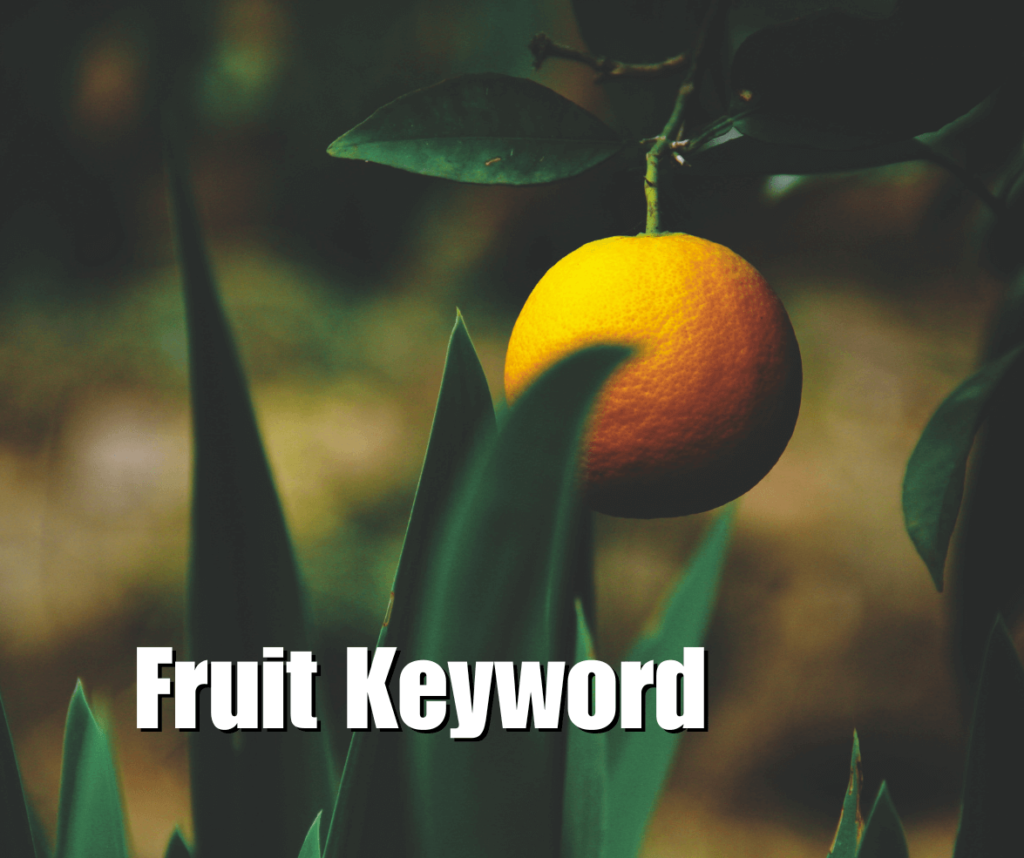
I asked Parker, “Have you ever picked fruits from a tree?”
He replied, “Yes, many times.”
I continued, “Which fruits are easier to pick—the ones at the top of the tree or the ones hanging lower?”
He quickly answered, “The ones hanging lower, of course!”
I asked, “Is there any difference in taste between the fruits at the top and the ones hanging low?”
He said, “No, not at all.”
I concluded, “So, when picking fruits, would you climb the tree first or pick the low-hanging ones?”
He replied, “I’d pick the low-hanging ones.”
I told him, “Exactly! That’s where the term low hanging fruit keywords comes from.”
Types of Keywords:
- Short-tail Keywords:
The keywords you’ve selected—home care, assisted living, senior health services—are all short-tail keywords. Since many people use these terms to search for general information (like I did when I first heard about senior care), these keywords have high search volumes. But because of this high search volume, big, giant websites dominate the competition.
Your new website, with lower DA and PA, won’t be able to compete with these giants.
- Long-tail Keywords:
On the other hand, longer keywords are known as long tail keywords. For example:
“Senior health services in Florida” is a long-tail keyword. It will have lower search volume but also lower competition.
This keyword is specific and targeted. So, even if fewer people search for it, those who do are more likely to be potential customers. By focusing on such long tail, low-search volume keywords, your website’s credibility will surely increase.
Therefore, among millions of keywords, the ones that require less effort to rank are called low-hanging fruit keywords. And the process of identifying them is known as “How to Find Low Hanging Fruit Keywords.”
I told Parker, “If you allow me, I can find some low-hanging fruit keywords for your business.”
Since I had been working with Parker for a while, I could tell from his enthusiastic “Yes” that he was really impressed with the concept of low hanging fruit keywords.
So, let me now describe how I worked on this for Parker’s business.
How to Find Low Hanging Fruit Keywords – A Step-by-Step Practical Outline for Finding for the Senior Care Business
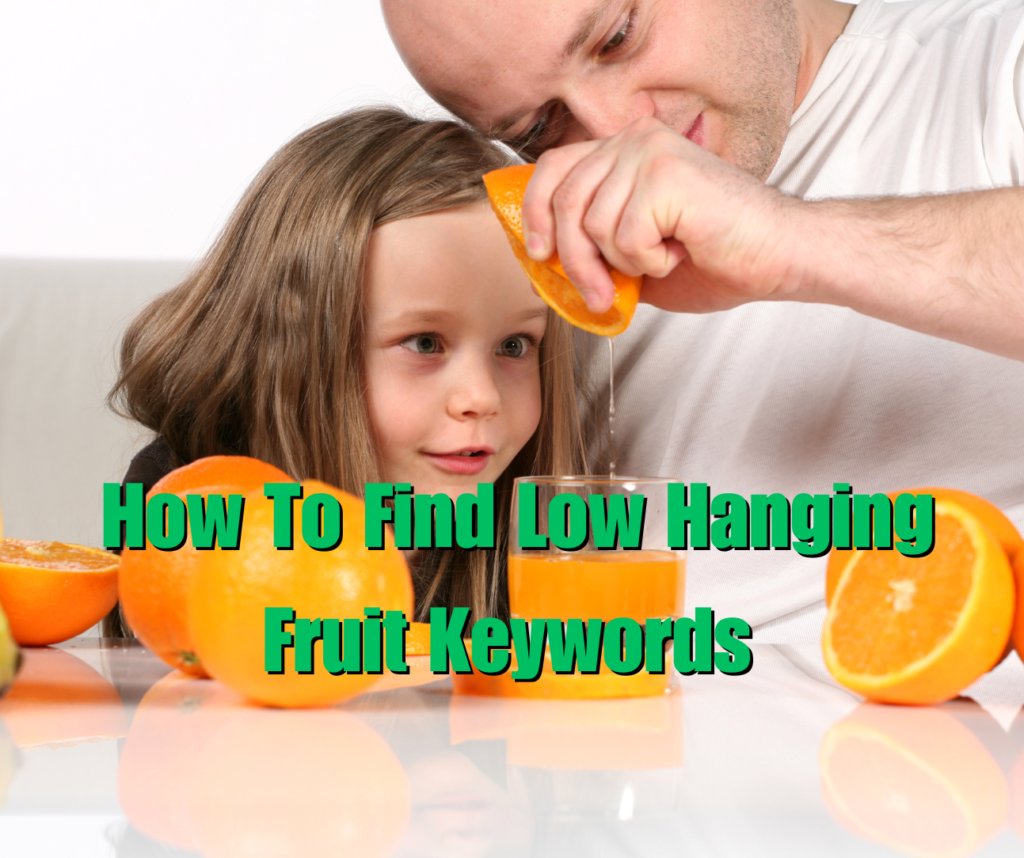
1. Understanding the Business Clearly
The foundation of SEO work is having a clear understanding of the website’s business and its target audience. If the nature of the business or the type of services is not well understood, selecting the right keywords becomes difficult. Therefore, in the first step, it is essential to have discussions with Parker to thoroughly understand his business. Your work plan should proceed accordingly.
(a) Type of Services
Parker’s senior care business provides various types of services. The more diversified the services, the easier it becomes to answer the question: how to find low hanging fruit keywords? Each service is associated with specific types of keywords that potential clients search for on Google.
Home Care Services:
Definition: Providing personal assistance, healthcare, and daily support to elderly individuals at home.
If you’re wondering what keywords would be suitable in this case, consider brainstorming first. If that doesn’t help, use the Keyword Planner by setting location and low competition filters. If good keywords still don’t appear, you can seek help from ChatGPT. Here’s what I found:
Common Keywords:
- In-home care for seniors
- Personal care services for the elderly at home
- Non-medical home care assistance
Assisted Living Facilities:
Definition: Residences or hostels where senior citizens can live independently but with necessary support and healthcare.
If you ask how to find low hanging fruit keywords in this case, the answer remains the same: refer to the methods above.
Common Keywords:
- Assisted living homes in Florida
- Affordable assisted living near me
- Senior living communities
Senior Health Services:
Definition: Specialized healthcare for senior citizens, such as nursing, therapy, and medical checkups.
Common Keywords:
- Senior health care services
- Elderly medical services in Florida
- Geriatric care facilities
(b) Target Location
In the journey of how to find low hanging fruit keywords, understanding how local SEO plays a role in location-based keyword selection is crucial. In most cases, it plays a 100% role, especially for senior care businesses because it’s a local business category. Think carefully—a senior citizen who lives alone would never want to leave their native location. If they have relatives, they would prefer to keep their elderly loved ones close by. Since Parker’s business is limited to the state of Florida, location-based keywords will be selected accordingly.
State-based Location:
- Senior care services in Florida
- Best home care agencies in Florida
City-based Location:
- Home care services in Miami
- Assisted living facilities in Orlando
- Senior health services in Tampa
Neighborhood/Zip Code Specific:
- Affordable elderly care near Fort Lauderdale 33301
- Senior living communities in Jacksonville Beach area
In many cases, native names of local areas should also be searched for relevant keywords.
Through local keywords, competition can be reduced easily, and targeted audiences can be brought to the website effortlessly.
(c) Target Audience
Parker’s business primarily caters to two main types of audiences:
Senior Citizens:
Those who want to receive services directly. For this group, using simple language and keywords that convey trust is important.
Example Keywords:
- Best home care services for seniors
- Safe assisted living options for elderly
Family Members/Guardians:
Those looking for senior care services for their parents or loved ones. For them, trustworthiness and cost-effective services are crucial.
Example Keywords:
- Affordable elderly care services for parents
- Top-rated nursing homes for seniors
- How to find trusted home care for elderly parents
(d) Understanding the Unique Selling Proposition (USP)
Why is Parker’s senior care different from others?
Affordable Pricing: If Parker offers services at a lower cost compared to competitors, then keywords like “affordable” or “low-cost” will be added.
Specialized Services: Services such as dementia care, 24/7 nursing support, etc.
Example Keywords:
- 24/7 dementia care for seniors in Florida
- Specialized medical home care for elderly
2. Creating an Initial Keyword List

After receiving keywords from any client, the first step in SEO is to analyze those keywords and create an initial keyword list. This forms the foundation for future content and optimization. Here’s how the list was created for Parker’s senior care business, step by step.
First Step:
Starting with Parker’s Provided Keywords We began by using the keywords provided by Parker as the base. These are the Primary Keywords, which are directly related to the business services and target audience.
Primary Keywords:
Senior Care
Home Care
Assisted Living
Senior Health Services
Second Step:
Identifying Related Keywords from Primary Keywords Next, we searched for related or synonymous words and phrases connected to the primary keywords. These keywords are terms that potential clients might use in search engines. The following methods were used for this purpose. In my case, I follow this approach, while other keyword researchers may have their own methods:
Using Google Auto-Suggestions:
When you type the primary keyword into Google’s search bar, suggestions appear below. These can serve as potential keywords.
Examples:
Senior care services near me
Affordable senior care in Florida
Senior care options for elderly parents
Getting Ideas from ‘People Also Ask’ Section:
In Google’s search results, the “People Also Ask” section contains questions that can be useful as relevant keywords.
Examples:
What is the difference between home care and assisted living?
How do I choose the best senior health service?
Using Google Related Searches:
Relevant keywords can also be found from the “Related Searches” section at the bottom of the search results page.
Examples:
Best senior living facilities in Florida
In-home health care for seniors
Using Keyword Research Tools:
Various keyword research tools can be used to gather more detailed information about keywords, such as search volume and competition level.
Tools:
Google Keyword Planner:
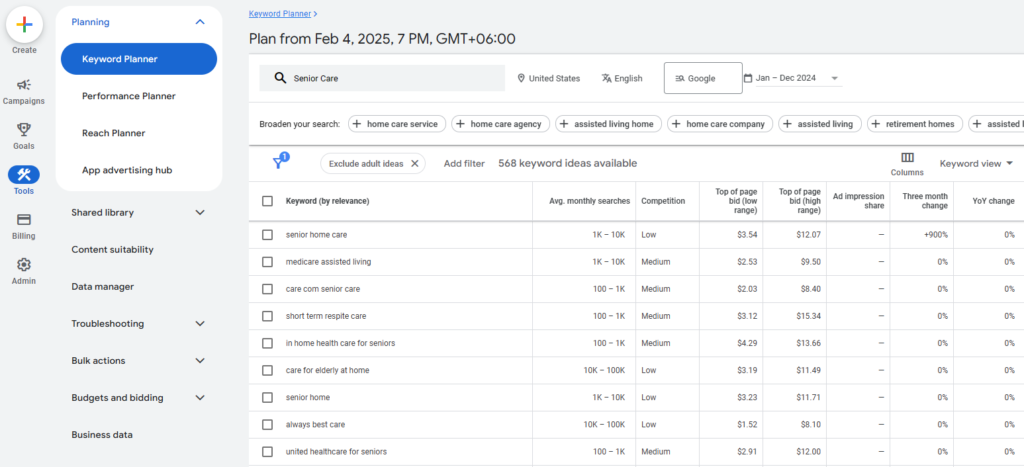
By searching “Senior Care,” you can find:
Senior care providers in Florida
Home care services for elderly
Assisted living vs nursing homes
Ubersuggest:
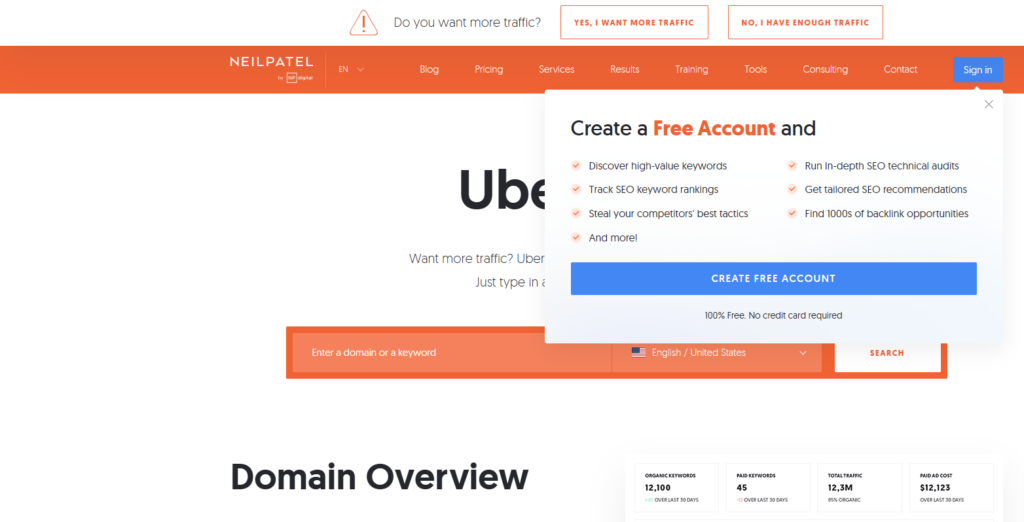
This tool helps find low-competition or low-hanging fruit keywords. Examples:
Affordable in-home senior care Florida
Best senior care services with low cost
AnswerThePublic:
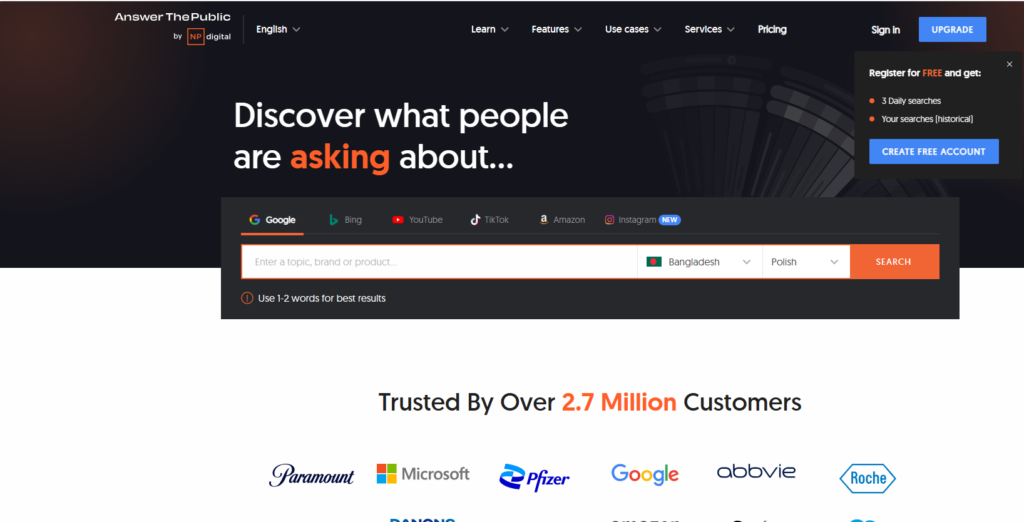
Using this tool, you can find different questions and phrases related to “Senior Care.” Examples:
Who provides the best senior care in Florida?
How to afford senior assisted living?
Third Step
Creating Keyword Clusters Organize the primary and related keywords into different clusters. This makes it easier to create content focused on specific services or topics.
Home Care Cluster:
In-home care services for seniors
Personal home care for elderly in Florida
Affordable non-medical home care
Assisted Living Cluster:
Assisted living facilities near Miami
Best assisted living for seniors in Florida
Cost of assisted living in Florida
Senior Health Services Cluster:
Senior health care services in Tampa
Geriatric medical services Florida
Elderly therapy and nursing support
Local Keywords Cluster:
Senior care services in Orlando
Affordable elderly care near Jacksonville
Home care assistance in Fort Lauderdale
Each keyword is paired with the language of its service, and this is how clusters are created.
Forth Step:
Analyzing Keyword Importance To find Low Hanging Fruit Keywords, consider the following factors:
Low Competition: Keywords with good search volume but low competition. High Relevance: How relevant the keyword is to the business. Local Targeting: Keywords related to specific locations.
Examples:
Affordable home care services in Florida (Low competition + High relevance)
Best senior health services in Tampa (Location-based + Relevant)
By creating an initial keyword list in this way, you can identify Low Hanging Fruit Keywords. These keywords will be the basis for future content creation and optimization, maintaining keyword density naturally around the main keyword ‘how to find low hanging fruit keywords’.
3. Using Keyword Research Tools

Tools:
- Google Keyword Planner
- Ubersuggest
- Ahrefs / SEMrush (if premium tools are available)
- AnswerThePublic
Methodology:
To effectively identify valuable long-tail keywords, follow these steps using each of the mentioned tools:
Google Keyword Planner:
- Enter each primary keyword to explore related keyword suggestions and their search volumes.
- Look for long-tail keywords with moderate to low competition but high relevance to the senior care business
Examples:
- Senior care services in Florida
- Affordable home care for seniors in Miami
- Best assisted living facilities near Orlando
Ubersuggest:
- Use Ubersuggest to discover additional keyword ideas, particularly focusing on low competition keywords.
- Analyze keyword difficulty scores and prioritize keywords that offer a balance of decent search volume and lower competition.
Examples:
- In-home senior care services with personalized support
- Affordable senior health services near Tampa
- Senior assisted living options with medical support in Florida
Ahrefs / SEMrush:
- If premium tools are available, utilize them to conduct a deeper competitive analysis.
- Examine competitor keywords and find gaps where long-tail keywords can be targeted.
- Track keyword trends and identify opportunities for content creation.
Examples:
- Senior living communities with specialized care in Jacksonville
- Cost-effective elderly care solutions in Fort Lauderdale
- Comprehensive home health care for seniors in Florida
AnswerThePublic:
- Use this tool to discover question-based long-tail keywords that potential clients may search for.
- Create content that directly answers these common questions, improving SEO and user engagement.
Examples:
- What are the best senior care services in Florida?
- How much does assisted living cost in Miami?
- Where can I find affordable senior health care in Orlando?
By systematically applying these tools and techniques, you can build a robust keyword list that includes high-relevance, low-competition long-tail keywords, optimizing your content strategy for better search engine visibility.
4. Analyzing Search Volume and Competition

Method:
You’ve found some good keywords. They sound promising. But does that mean they’re ready for final selection? Not quite. How to find low hanging fruit keywords? The answer isn’t that simple. Indeed, one of the most critical steps in keyword research is analyzing the search volume and competition for each keyword. This ensures that the selected keywords will be effective and beneficial for the business.
Search Volume Analysis:
Focus on keywords that have a monthly search volume between 20 to 200.
- Keywords with very high search volume often come with high competition, so it’s natural to avoid them. Instead, focus on medium-volume keywords.
Examples:
- Affordable senior care services in Florida (Search Volume: 150)
- Best in-home care for elderly in Miami (Search Volume: 90)
Competition Analysis:
Prioritize keywords with Low to Medium competition because ranking for them is relatively easier.
- How do you identify what’s easy or tough? If a giant company is already ranking for that keyword, it’s better to skip it.
- Use keyword research tools like Google Keyword Planner or Ubersuggest to check competition levels. You can also manually search on Google to observe the competition.
Examples:
- Senior health care services in Tampa (Low competition)
- Assisted living options in Jacksonville (Medium competition)
CPC (Cost Per Click) Analysis:
By checking the CPC, you can determine which keywords are more valuable for advertising. A high CPC indicates that the keyword is commercially profitable since advertisers are willing to pay more for clicks.
- Creating content around high CPC keywords can also support ad revenue.
Examples:
- Best senior living communities in Florida (CPC: $4.50)
- Affordable home care for seniors in Miami (CPC: $3.20)
Through this analysis, you can select keywords that are suitable for the business, less competitive, and commercially profitable. As a result, organic traffic to the website will increase, and the search engine ranking will improve.
5. Analyzing Competitors

Method:
Analyzing competitors is a crucial step in selecting the right keywords. By understanding the strategies and positions of your competitors, you can identify keywords that are easier to rank for. This is an essential part of answering the question, how to find low hanging fruit keywords?
(a) Identify Competitors by Searching Keywords on Google:
Start by searching your target keyword on Google to see which websites are ranking at the top.
- Check the top 10 results to see what types of sites are ranking—are they large company websites, blogs, forums, or local businesses?
- If forums or blogs are ranking, it often indicates that the keyword is easier to rank for.
Example:
- Searching Affordable senior care services in Florida might show small local businesses and blog sites ranking, indicating a chance for easier ranking.
**(b) Check Competitors’ Domain Authority (DA) and Page Authority (PA):
- Use tools like Moz or Ahrefs to check the DA and PA of competitor websites.
- Domain Authority (DA) measures the overall strength of the domain, while Page Authority (PA) indicates the ranking power of a specific page.
Key Points:
- If competitor sites have a DA and PA below 20, it suggests that ranking for that keyword is easier.
- New or less-known sites ranking high indicates low competition.
Example:
- For Best in-home care for elderly in Miami, if the top sites have DA between 15-20, it suggests a good opportunity to rank.
- Conversely, if high-authority sites like WebMD or Healthline (with DA above 70) are ranking, it’s better to avoid that keyword.
(c) Analyze Competitors’ Content:
- Review the quality, length, and structure of your competitors’ content.
- Check how informative their content is, how many media elements (images, videos) are used, and how keywords are integrated.
Steps for Analysis:
- Do competitor articles include FAQs or sections like People Also Ask?
- What kind of Meta Tags, Headers (H1, H2), and Internal Linking strategies are used?
- Are there effective Call to Actions (CTAs) and how is the User Experience (UX)?
(d) Analyze Competitors’ Backlink Profiles:
- Use tools like Ahrefs or SEMrush to examine the Backlink Profile of competitor sites.
- If competitors have fewer backlinks, it indicates easier ranking potential for that keyword.
Example:
- If sites ranking for Senior health care services in Tampa have limited backlinks, it could be a low hanging fruit keyword.
By following these steps, you can evaluate the strengths and weaknesses of your competitors. If competitors are relatively weak, those keywords can be identified as low hanging fruit keywords. This will lead to improved ranking and increased organic traffic for your site.
6. Focusing on Local and Niche Keywords

Method:
Focusing on local and niche-specific keywords is a highly effective strategy for identifying low hanging fruit keywords. While these keywords may have lower search volumes, they attract highly targeted audiences who are more likely to convert into potential clients.
(a) Why Focus on Local Keywords?
Local keywords target specific geographic areas, which means less competition compared to broad, generic keywords.
- Higher Intent: Users searching for local services are usually closer to making a decision.
- Lower Competition: National or global businesses often overlook local keywords, creating an opportunity to rank easily.
- Improved Local SEO: Targeting local keywords helps improve rankings in Google Maps and local search results.
(b) Examples of Location-Based Keywords:
- Senior home care services in Tampa
- Elderly care near Fort Lauderdale
- In-home nursing services for seniors in Jacksonville
- Affordable senior health care in Miami
- Best assisted living facilities in Orlando
These are low hanging fruit keywords because they:
- Have lower search volume, meaning fewer people are searching, but…
- Attract highly motivated users looking for immediate services in specific areas.
(c) How to Find Local Keywords:
Use Google Auto-Suggestions:
- Type the base keyword + location (e.g., senior care Tampa) and note the suggested phrases.
Explore ‘People Also Ask’ & Related Searches:
- Search for a general keyword and scroll down to find related local queries.
Leverage Keyword Research Tools:
- Tools like Google Keyword Planner, Ubersuggest, or Ahrefs can filter results based on location.
- Example: Searching senior care Florida on Ubersuggest will show related local keywords with search volume and competition data.
(d) Why Local Keywords are Low Hanging Fruit:
- Less Competition:
- Big national companies often don’t focus on hyper-local terms, making it easier to rank.
- Higher Conversion Rates:
- Users searching for services like Elderly care near Fort Lauderdale are usually ready to hire, leading to faster client acquisition.
- Opportunity to Rank in Local Listings:
- Optimizing for local keywords helps businesses appear in Google My Business and local packs, increasing visibility.
(e) Combine Local with Niche-Specific Keywords:
Go a step further by combining location-specific keywords with niche services.
- Example:
- Affordable in-home physical therapy for seniors in Tampa
- Specialized dementia care services near Orlando
- Low-cost post-surgery home care in Jacksonville
These combinations not only make the keywords highly specific but also reduce competition significantly, making them ideal low hanging fruit keywords.
Focusing on local and niche-specific keywords is a smart way to capture targeted traffic with high conversion potential. Even with lower search volumes, these low hanging fruit keywords can drive valuable leads and help senior care businesses establish a strong local presence in search results.
7. Creating Content Ideas (Content Mapping)
Method:
After finding keywords, before creating content, you need to plan how to prepare the content by maintaining SEO rules using those keywords. It’s similar to having all the best ingredients ready for cooking; now, you need a plan to prepare a delicious dish. Proper content mapping using Low Hanging Fruit Keywords makes it easier to reach the target audience and rank well on search engines. Each keyword can be used to create blog posts, service pages, or guides that provide valuable information to users and generate leads for the business quickly.
(a) How to Create Content Ideas:
Select Low Hanging Fruit Keywords
Start with keywords that have low competition and high relevance.Determine the Type of Content Based on the Topic:
Blog Post: Informative articles or guides that solve readers’ problems.
Service Page: Pages related to specific services directly connected to the business.
FAQ Page: Common questions and their answers.
Local Guide: Content based on specific regions.
(b) Example-Based Content Ideas:
“Top 5 Affordable Assisted Living Facilities in Florida”
This content will provide a list of affordable assisted living facilities in Florida.
Target Keyword: Affordable Assisted Living Facilities in Florida
Covered Topics:
Benefits and costs of each facility
How to choose the right facility
Customer reviews and experiences
“How to Choose the Best Home Care Service for Seniors in Miami”
A guide to selecting the best home care service for seniors in Miami.
Target Keyword: Best Home Care Service for Seniors in Miami
Covered Topics:
Step-by-step instructions for selecting services
Cost comparison and service analysis
List of locally licensed organizations
“Benefits of In-Home Nursing for Elderly in Orlando”
Detailed information about the benefits of in-home nursing services for the elderly in Orlando.
Target Keyword: In-Home Nursing for Elderly in Orlando
Covered Topics:
Advantages and importance of in-home nursing services
How to find professional nursing services
Information on costs and insurance coverage
(c) FAQ and Local Guide Content Ideas:
FAQ Page:
“What is the difference between Home Care and Assisted Living?”
“How much does senior care cost in Florida?”
Local Guide:
“Senior Care Services Available in Tampa: A Complete Guide”
“Best Elderly Care Options Near Fort Lauderdale”
(d) Things to Keep in Mind While Creating Content:
Create Content Understanding User Intent:
It is very important to understand what information users are looking for. The content should be structured accordingly.
Optimize for SEO:
Use Title Tag, Meta Description, and Header Tags (H1, H2, H3) correctly.
Add Internal Linking and External Linking.
Provide Local References:
Adding local addresses, phone numbers, or Google Map links benefits local SEO.
By using Low Hanging Fruit Keywords for content mapping in this way, organic traffic increases on the site, and it becomes easier to reach the specific target audience. Additionally, it is beneficial for search engine ranking and helps increase potential leads for the business.
8. Monitoring Results and Keyword Refinement
Method:
Regularly Monitor Traffic and Rankings: Use tools like Google Search Console and Google Analytics to track the performance of your keywords and content. Monitor metrics such as:
- Organic Traffic: Check if there is an increase in visitors from search engines.
- Keyword Rankings: Track the position of your targeted keywords in SERPs.
- Click-Through Rate (CTR): Evaluate how often users are clicking on your links when they appear in search results.
- Bounce Rate & Session Duration: Understand user engagement on your site.
2. Refine Keywords if Necessary: If specific keywords are not ranking as expected:
- Analyze Competitor Performance: Check if competitors are outranking you and why (e.g., better content, backlinks).
- Adjust Content Strategy: Optimize existing content by improving readability, updating information, or adding new insights.
- Use New Keywords: Incorporate new or related keywords based on your performance analysis and market trends.
Continuous Improvement:
- Regularly update and optimize old content to maintain relevance.
- Test variations of keywords to find which ones deliver better results.
- Focus on long-tail keywords and local variations that may attract more specific and conversion-ready traffic.
By consistently monitoring your results and refining your keyword strategy, you can ensure sustained growth in organic traffic and better rankings on search engines.







2 Comments
7 Practical Solutions to Fix "Crawled - Currently Not Indexed" in Google Search Console - Social Media Caring
[…] engine bots, I made sure that my content was engaging and valuable for human readers. I also used keywords naturally within the text to maintain readability and […]
5 Powerful Reasons to Write a Letter to Newspaper Editor to Publish Article Today - Social Media Caring
[…] Research: Learn how to identify “low-hanging fruit” keywords—terms with decent search volume but low competition. These help your article get […]